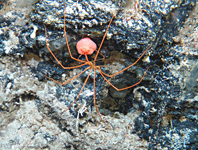Abstract
The subfamily Panchaetothripinae comprises 40 extant genera worldwide (ThripsWiki 2019), although only 15 genera are previously recorded from China (Mirab-balou et al. 2016; Li et al. 2018). Panchaetothripinae thrips are characterized by the strong reticulations on the body and leg. Wilson (1975) recognized three tribes in this subfamily, Panchaetothripini, Monilothripini and Tryphactothripini, but only tribe Tryphactothripini was relatively supported based on morphological characters (Mound et al. 2001). Species in this Tribe have abdominal segment II constricted at the base and bearing laterally patches of strong ridges, wart-like tubercles or stoutly recurved microtrichia, and abdominal segment X tends to be asymmetrical. Recently, two further genera of Tryphactothripini were found in Southern China, Noathrips and Opimothrips. These two monotypic genera are reported only from the Old World tropics, Noathrips from India and Sri Lanka, and Opimothrips only from Thailand (Bhatti 1967; Kudô 1979; Nonaka & Okajima 1992). The purpose of this paper is to record these two genera from China, together with the first description of the male of Opimothrips tubulatus.
References
Bhatti, J.S. (1967) The Tryphactothrips–complex in India, with a key to the world genera (Thysanoptera: Thripidae). Oriental Insects, 1 (3–4), 139–191.
https://doi.org/10.1080/00305316.1967.10433858
Kudô, I. (1979) Some Panchaetothripine Thysanoptera from Southeast Asia. Oriental Insects, 13 (3–4), 345–355.
https://doi.org/10.1080/00305316.1979.10433628
Li, Y.J., Li, Z.Y. & Zhang, H.R. (2018) A new Panchaetothripinae genus and species, also a newly recorded genus, from Southwestern China (Thysanoptera: Thripidae). Zootaxa, 4394 (2), 235–242.
https://doi.org/10.11646/zootaxa.4394.2.6
Mirab-balou, M., Wang, Z.H. & Tong, X.L. (2016) Review of the Panchaetothripinae (Thysanoptera: Thripidae) of China, with two new species descriptions. Canadian Entomologist, 149 (2), 141–158.
https://doi.org/10.4039/tce.2016.53
Mound, L.A., Marullo, R. & Trueman, J.W. (2001) The greenhouse thrips, Heliothrips haemorrhoidalis, and its generic relationships within the subfamily Panchaetothripinae (Thysanoptera: Thripidae). Insect Systematics & Evolution, 32 (2), 205–216.
https://doi.org/10.1163/187631201X00164
Nonaka, T. & Okajima, S. (1992) Two new genera and species of the subfamily Panchaetothripinae (Thysanoptera: Thripidae) from Southeast Asia. Bulletin of the Biogeographical Society of Japan, 47, 103–108.
ThripsWiki (2019) ThripsWiki - providing information on the World's thrips. Available from: http://thrips.info/wiki/Main_Page (accessed on 7 January 2019).
Wilson, T.H. (1975) A monograph of the subfamily Panchaetothripinae (Thysanoptera: Thripi-dae). Memoirs of the American Entomological Institute, 23, 1–354.

